Vietnam is at a turning point in digital asset development
On the morning of July 15, in Ho Chi Minh City, Lao Dong Newspaper organized a National Strategy Forum on Digital Assets: Policy for innovation and global integration.
The seminar aims to create conditions for domestic and foreign management agencies and enterprises to exchange and discuss directions for digital assets to be strictly legalized while still ensuring the promotion of innovation and global integration.
Attending the event, Ms. Dang Thi Luan - Acting Director of the Ho Chi Minh City Innovation and Startup Center (SIHUB - a unit under the Department of Science and Technology of Ho Chi Minh City) hoped to listen to more valuable opinions and perspectives from experts, speakers and delegates attending the seminar to have more information as well as new connections in this field.
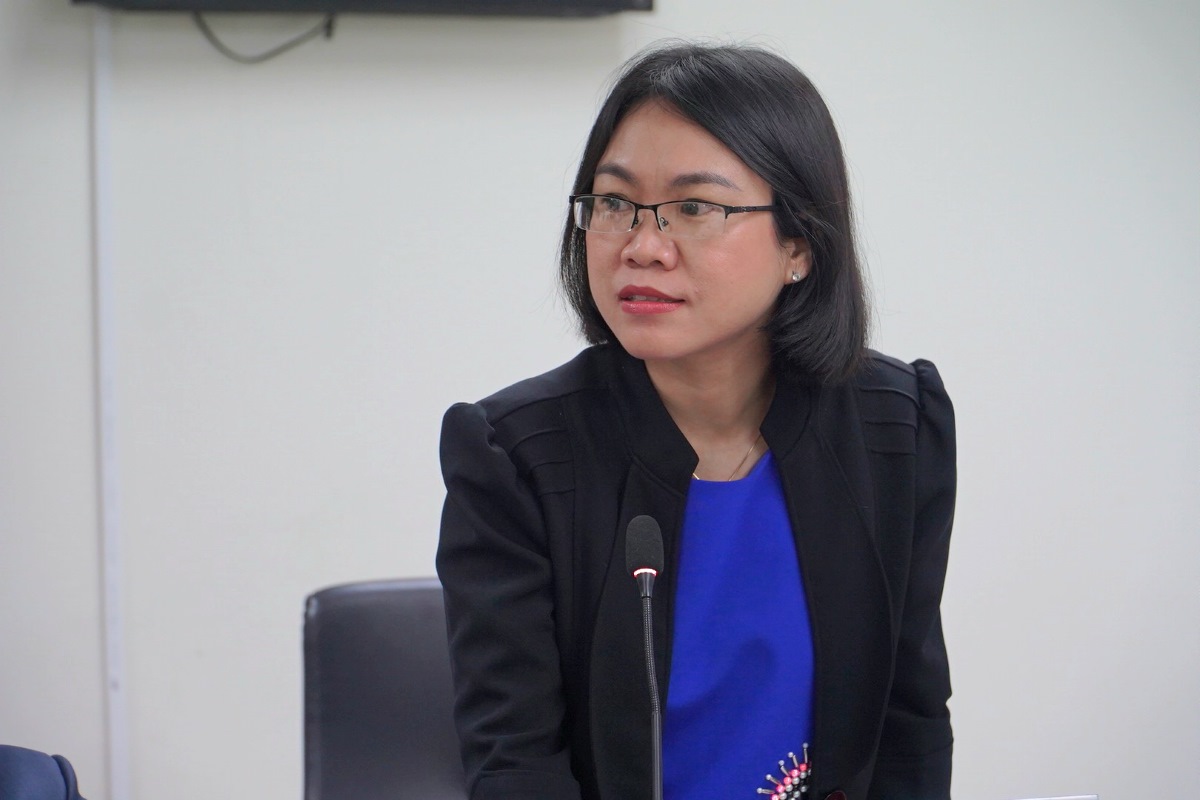
Ms. Luan hopes that after the seminar, there will be more opportunities for cooperation and companionship with units to promote start-up and innovation activities in Ho Chi Minh City to be better and better.
Mr. Nguyen Manh Cuong, Former Deputy Chief of Office of the Ministry of Science and Technology, Deputy General Secretary of the Vietnam Automation Association, emphasized that Vietnam is at a turning point in establishing a clear legal framework for digital assets.
He pointed out 6 notable highlights in Vietnam such as: Digital assets have been included in the group of subjects that need to be monitored and researched to move towards building a suitable management mechanism. A legal framework is gradually taking shape. Some localities such as Ho Chi Minh City and Da Nang have pioneered experimentation and proactively approached this field. Relevant management organizations, such as the Ministry of Finance and the State Bank, are studying digital asset models associated with real value...
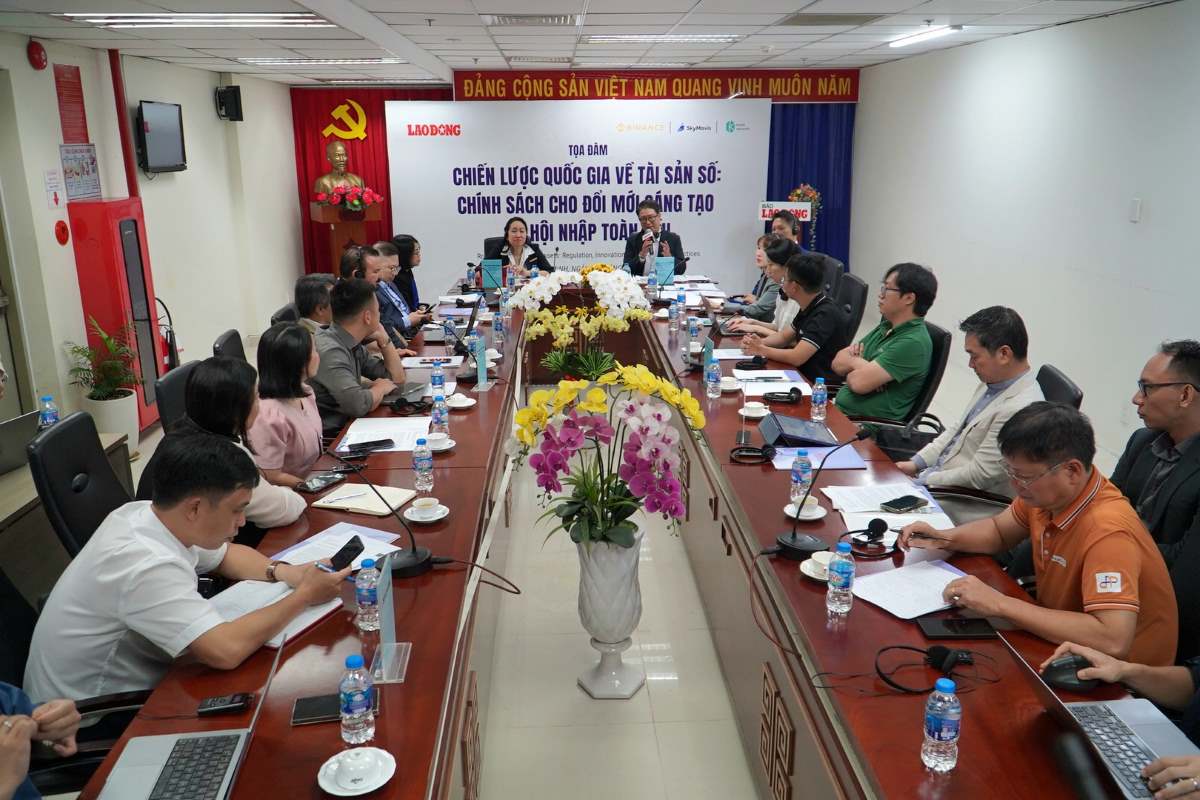
PSG.TS. Binh Nguyen of RMIT University has reviewed the legal framework for digital assets in Vietnam. Most recently, in June 2025, the National Assembly officially passed the Law on Digital Technology Industry, marking the first time in Vietnam's history that digital assets have been recognized in the national legal framework. This law will take effect from January 1, 2026.
Although there have been important steps forward, there are still some legal gaps that need to be further improved. Notably, issues related to digital securities and legal documents on the books have not been fully adjusted. These are potential areas but also have many risks, requiring a clear legal framework to protect users, investors and businesses operating in the field of digital assets, Mr. Binh emphasized.
Attending the event, Mr. Richard Teng - CEO of Binance emphasized that they identified Vietnam as an important link in the global digital asset development and promotion strategy, a market with great potential in the future.
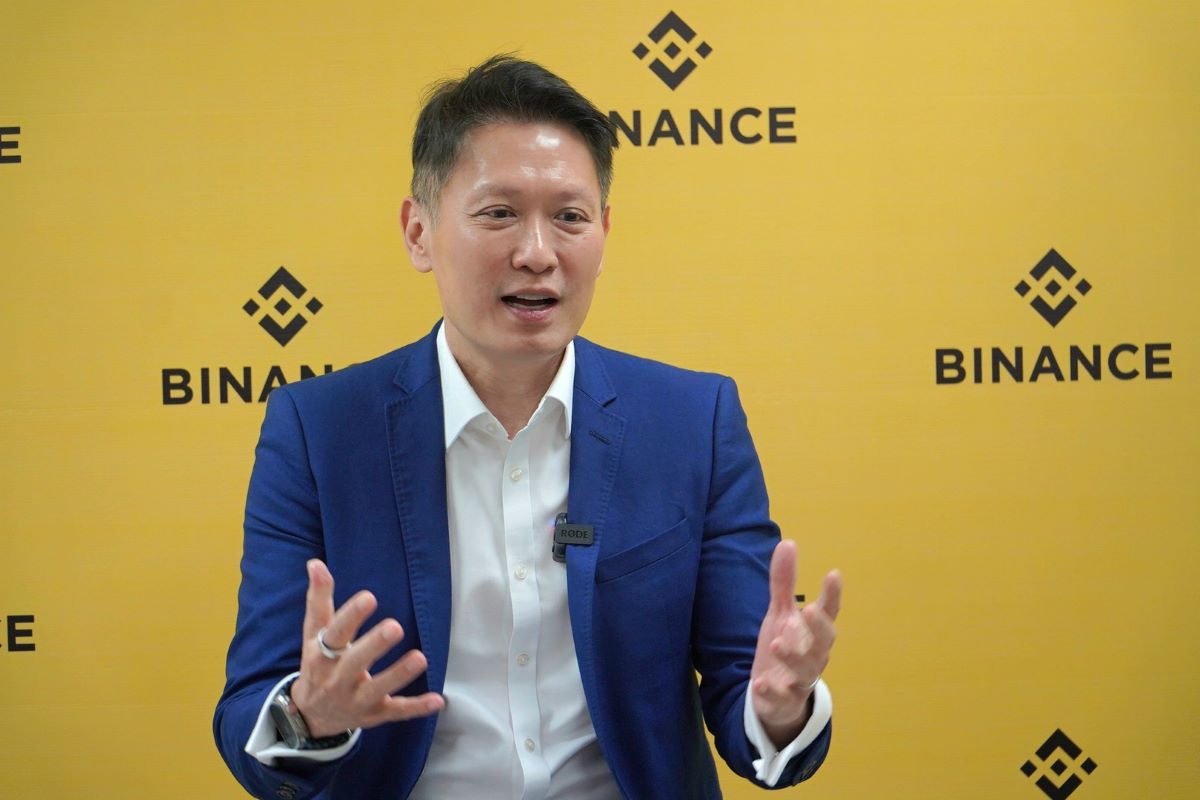
As a key market, Vietnam is considered a strategic partner with Binance to shape the future of the digital economy. To realize this vision, Binance is committed to closely coordinating with management agencies, industry enterprises and communities in Vietnam to build a healthy, sustainable and creative financial ecosystem. According to Binance, Vietnam will be an important part of the next wave of digital finance innovation, with prominent trends such as Web3, AI, stablecoin and asset digitalization.
Digital assets, opportunities and challenges
From his perspective, sharing about digital assets, Mr. Tran Huy Vu - CEO of Kyber gave some opinions related to the draft decree on piloting the cryptocurrency asset market.
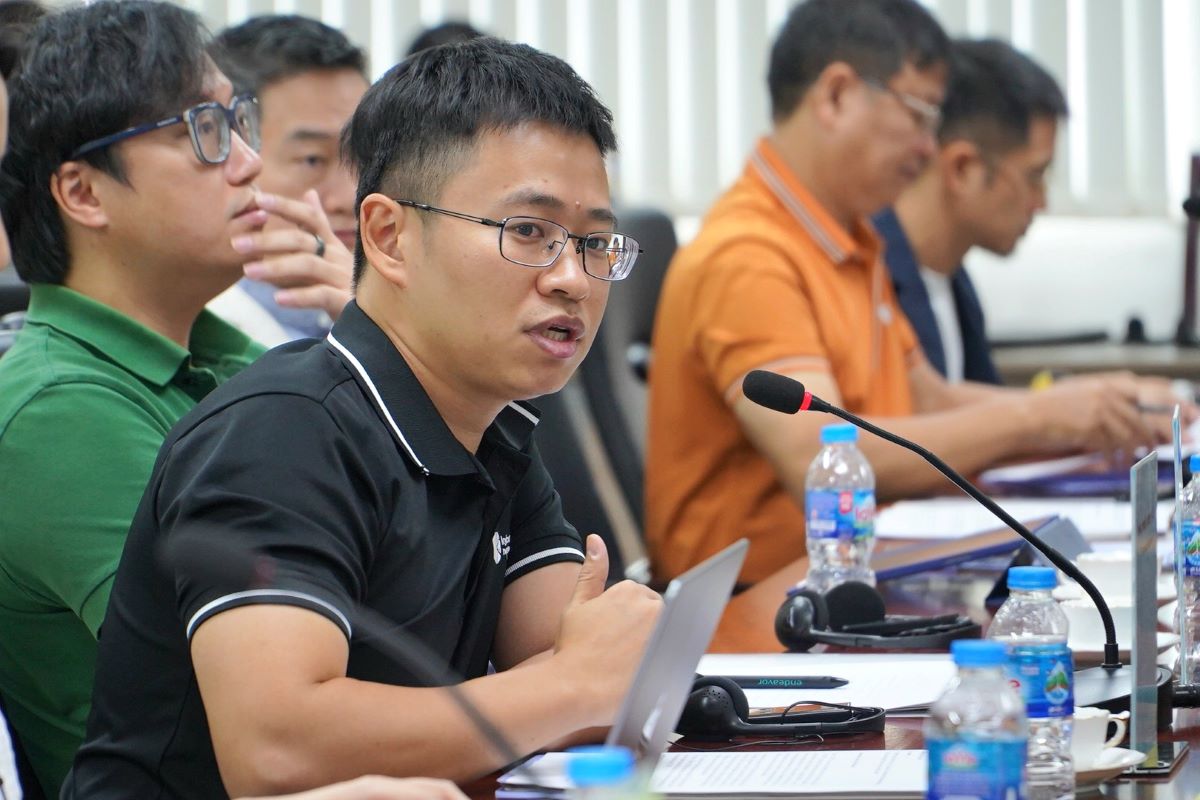
He said that the draft has not gone into all types of applications, especially innovation models that are still in the early stages. But it is the small apps today that can become a major pillar in the near future - in just the next 3 to 5 years.
Meanwhile, Mr. Nguyen Thanh Trung - CEO of Sky Mavis emphasized that he was surprised to see Vietnamese lawmakers proactively approach a technology that is rapidly developing globally. However, along with the speed, there is a question about whether we have fully reviewed the necessary aspects to both develop the market and ensure sustainability.
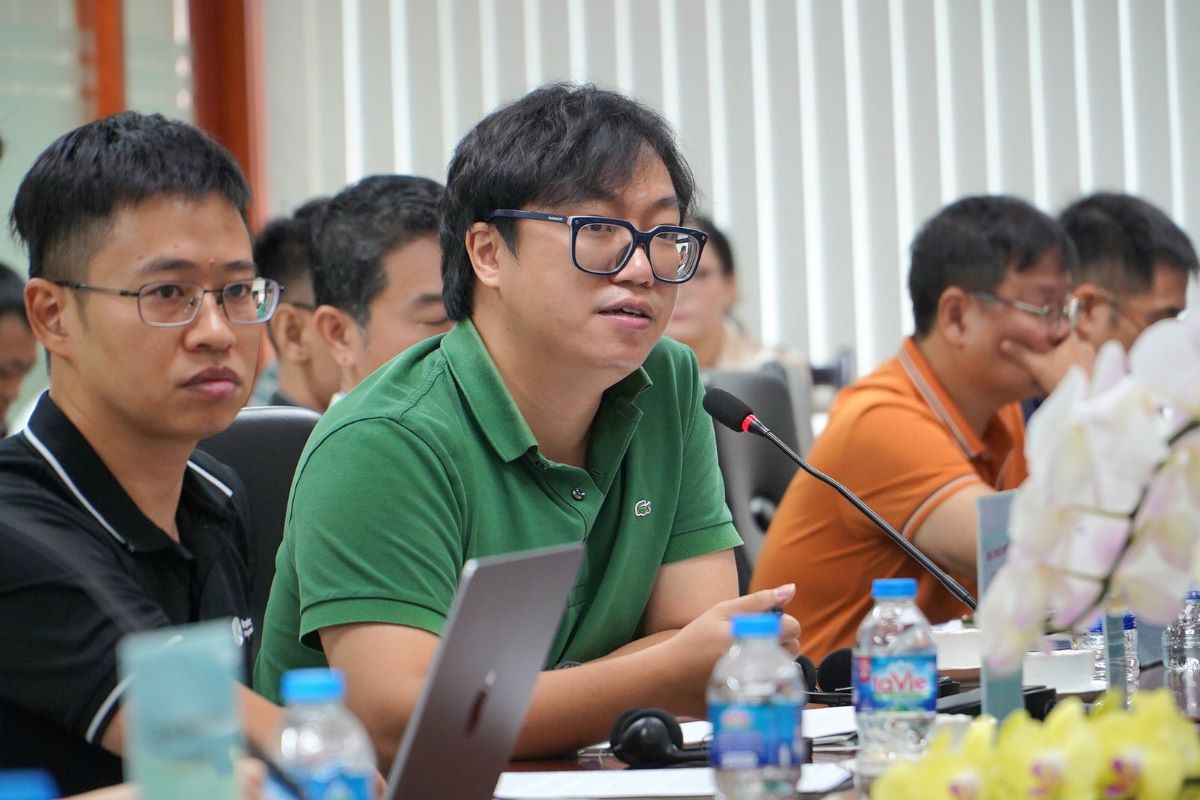
He raised concerns about the approach in the draft being somewhat different from current market practice. Although Vietnam is not yet a technological power, it has and is holding a certain position on the world map. Vietnam's proactive promulgation of laws related to digital assets is a "golden opportunity" for the domestic market as well as innovation companies operating here.
PSG.TS Binh Nguyen believes that digital assets and cryptocurrency assets will not stop at transactions. It is the foundation for a financial system that operates entirely on the Internet, based on smart contracts and peer-to-peer transactions.
"In the next 10'15 years, I believe that the decentralization model will become more popular, when users directly use financial products without intermediaries," said PSG. Dr. Binh Nguyen.
According to Mr. Richard Teng, cryptocurrency technology can play a positive role in global anti-money laundering thanks to its high traceability, extremely low money laundering rate of only about 0.02%, transparency...
Practice shows that when there is a suitable legal framework as in the case of the UAE after building a legal framework for digital assets cryptocurrency can become an effective tool to increase transparency and support global anti-money laundering efforts.
According to his experience, the legal framework for cryptocurrencies needs to be based on close cooperation between stakeholders, including management agencies, policymakers and industry representatives - both domestically and globally. Only with comprehensive consultation can the regulations fully reflect both the risks and benefits of technology.
At the same time, it is necessary to avoid imposing excessive restrictions, because this can lead users to switch to decentralized platforms that do not comply with regulations on identity verification (KYC) and anti-money laundering (AML), increasing risks and reducing management efficiency.
Regarding recommendations to authorities, speakers attending the seminar mostly leaned towards the need for international connectivity and legal improvement so that Vietnam can grasp the global trend in managing and promoting the digital asset industry.

The Digital Technology Industry Law, passed by the National Assembly on June 14, has recognized for the first time in the Vietnamese legal system the concept of digital assets and cryptocurrencies.
The law stipulates that digital assets are a type of asset under the Civil Code, including two main groups: "virtual assets" (not encrypted, such as reward points, vouchers) and " amount of cryptocurrency" (using cryptocurrency to authenticate transactions, but not legal currency or securities).
Based on that platform, the Government is empowered to specify in detail the licensing conditions, cybersecurity standards, anti-money laundering and anti-terrorism finance measures, in accordance with international practices.
Along with the legalization of digital assets, in June 2025, the Government also issued a series of related policies. In particular, Decision 1131/QD-TTg identifies blockchain as a national strategic technology, prioritizing the development of infrastructure platforms such as "Blockchain as a Service" and "Vietnam Blockchain Service Network".











